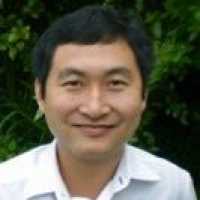Fisheries and Aquaculture Journal
Open Access
ISSN: 2150-3508
ISSN: 2150-3508

Sophal Chhun
Technical Executive, Consultant on Environment and Development RCBCC Co., Ltd.
Phnom Penh, Cambodia
Dr Sophal Chhun completed his Bachelor Degree in Forestry Science at the Royal University of Agriculture in Phnom Penh in 2002, Master of Environmental Management and Development at the Australian National University (ANU) in Canberra in 2007, and Ph.D. in Geography (valuation of biodiversity and ecosystem services to improve spatial management of near-shore marine areas in New Zealand) at University of Otago in Dunedin at the end of 2013.
Dr Chhun has worked as Technical Executive of RCBCC Co., Ltd. since November 2014. RCBCC is a leading environmental services provider in Cambodia that provides consulting services in environmental impact assessment (EIA) of development projects, environmental monitoring, and multidiscipline research. In 2006-2008 he also joined the Secretariat General for the National Council on Sustainable Development, which is an inter-ministerial body of the Royal Government of Cambodia particularly responsible for research and policy formation to guide sustainable development. Before this, he worked at the Department of Environmental Impact Assessment (EIA), Ministry of Environment for ten years. He was the Chief of Project Monitoring Office at the EIA Department in 2008-2010 & 2013-2014 and a secretary for the Legal, Environmental, Economic, Social, & Cultural Advisory Committee for the Minister of the Environment in 2009-2010. He was actively involved in several collaborative projects at the Ministry on climate change, terrestrial and aquatic biodiversity, and improvement of corporate environmental and social responsibility. He has also intermittently worked as an environmental expert or independent consultant for local and international consulting firms. Further, he has been a guest lecturer of an EIA course – part of a “Master Programme on Biodiversity Conservation” – at the Royal University of Phnom Penh (RUPP) since 2010.
Dr Chhun is interested in investigating opportunities to optimise social value associated with allocation of natural capital. Research in this area covers a wide range of topics, but he is primarily interested in (i) understanding long-term goals for natural resources and environmental management of various stakeholders; (ii) identifying and quantifying social-environmental impacts of development and conservation proposals; (iii) valuing these impacts on human well-being, while developing key methodological improvements to the application of assessment tools and valuation techniques; and (iv) identifying how these values can be better used to improve economic efficiency, equity, and sustainability in allocation of our depletable natural resources. He is also interested in assessing how and whether ‘payment for ecosystem services’, ‘pollution taxes’, and other financial mechanisms can be used to internalize externality values and cause behavioural changes toward resource-efficient, sustainable patterns.